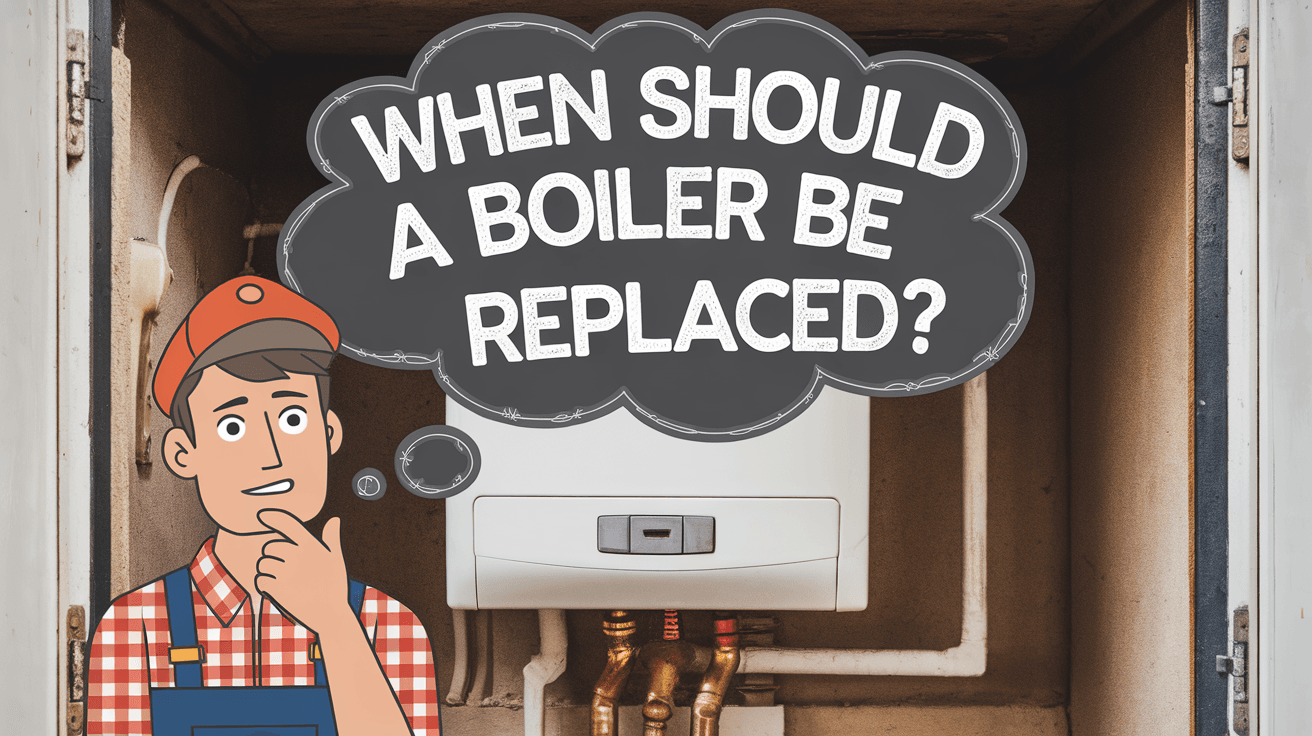Replacing a boiler in Lancashire can be a significant decision, and Boiler Replacement is here to guide you through the process. Our team understands the complexities involved, from choosing the right boiler to ensuring a smooth installation. Whether you need a combi, system, or conventional boiler, we have the expertise to meet your needs.
A new boiler can transform your home's heating and hot water system, making it more efficient and reliable. Our skilled engineers in Lancashire can complete the installation within one to three days, depending on the complexity of the job. We focus on providing a quick and professional service, especially during emergencies.
When it's time to replace your boiler, Boiler Replacement offers a seamless and stress-free experience. Our services are designed to help you avoid the inconvenience of frequent breakdowns and high energy bills. Trust us to ensure your home remains comfortable and energy-efficient all year round.
What Are The Costs Of Boiler Replacement In Lancashire?
Replacing a boiler in Lancashire can vary in cost depending on several factors, but you can expect to pay around £2,000 to £4,000 for a standard installation. This includes the cost of the boiler itself, labour, and any additional parts needed.
Average Installation Costs
The average cost to install a new boiler in Lancashire typically ranges from £2,000 to £4,000. This includes the price of the boiler, which can vary from £500 to £2,000, and the labour, which usually costs between £1,000 and £2,000.
Additional Parts And Labour Expenses
Additional parts and labour expenses can add to the total cost. For example, if you need a new thermostat or pipework alterations, these can cost an extra £100 to £300. Labour costs can also increase if the installation is complex or if the existing system needs significant modifications.
Factors Affecting Price Variations
Several factors can affect the price of a boiler replacement in Lancashire. The type of boiler you choose, such as a combi, system, or regular boiler, can significantly impact the cost. The size and age of your home, as well as the condition of your existing plumbing, can also play a role. Additionally, the expertise and reputation of the installer can influence the final price.
Which Types Of Boilers Are Available In Lancashire?
Lancashire offers a range of boiler options to suit different needs and preferences. Combi boilers, system boilers, and conventional boilers are the main types you can choose from.
Combi Boiler Options
Combi boilers are popular in Lancashire due to their space-saving design and efficiency. They provide both hot water and central heating on demand, making them ideal for smaller households or those looking to save space. These boilers are known for their reliability and low maintenance, ensuring you have a consistent supply of hot water without the need for a separate hot water tank.
System Boiler Choices
System boilers are another great choice, especially for larger homes with multiple bathrooms. They use a small hot water cylinder to store hot water, ensuring a steady supply for your entire household. These boilers are more efficient than conventional models and are easier to install, as most components are pre-fitted within the boiler itself.
Conventional Boiler Solutions
Conventional boilers, also known as regular boilers, are ideal for properties with more complex heating systems. They require a separate hot water cylinder and a cold water storage tank, making them suitable for larger homes with higher hot water demands. Conventional boilers offer reliable performance and can be integrated with renewable energy sources like solar panels for added efficiency.
How Long Does Boiler Replacement Take In Lancashire?
Boiler replacement in Lancashire typically takes between one and three days, depending on the complexity of the installation. Here’s a closer look at what you can expect:
Standard Installation Timeframes
A standard boiler replacement in Lancashire usually takes about one day. This timeframe assumes that the new boiler is similar to the old one and that there are no significant issues with your plumbing or heating system.
Complex Installation Scenarios
If your installation involves significant changes, such as moving the boiler to a new location or upgrading the plumbing system, the process can take up to three days. These more complex scenarios often require additional plumbing work and may involve consultation with building regulations experts.
Emergency Replacement Services
For emergency boiler replacements, most heating engineers in Lancashire aim to complete the job within a day to ensure you have heating and hot water as quickly as possible. These services are crucial during cold weather and are often prioritised by heating and plumbing professionals.

When Should A Boiler Be Replaced In Lancashire?
Determining when to replace your boiler is crucial for maintaining a comfortable and energy-efficient home. If you notice any of the following issues, it might be time to consider a new one.
Common Warning Signs
Frequent breakdowns can indicate that your boiler is nearing the end of its lifespan. If you find yourself calling out a plumber more often than usual, it’s a clear sign that something is amiss. Increased energy bills are another red flag. A less efficient boiler will consume more gas to produce the same amount of heat, leading to higher costs.
Age Related Factors
Boilers typically have a lifespan of around 10-15 years. If your boiler is approaching this age, it’s worth considering a replacement to avoid unexpected breakdowns. Older models tend to be less efficient and more prone to problems, which can lead to higher maintenance costs over time.
Efficiency Considerations
Modern boilers are significantly more efficient, often reaching efficiencies of over 90%. If your current boiler is below this threshold, upgrading could save you money in the long run. Industries such as construction and heating services can provide subsidies or incentives for replacing old, inefficient boilers, making the investment more affordable.
Lancashire Boiler Engineers should possess a range of specific qualifications to ensure they can perform their job safely and effectively. Here’s what you need to know:
Required Certifications
Lancashire Boiler Engineers must hold relevant certifications, such as the City & Guilds or EAL qualifications in boiler installation and maintenance. These certifications demonstrate your competence in handling complex heating systems.
Gas Safe Registration
Gas Safe registration is mandatory for any engineer working with gas appliances. This registration ensures that you meet the highest safety standards and can legally work on gas installations in Lancashire.
Local Authority Compliance
Compliance with local authority regulations is crucial. You must be familiar with and adhere to the specific building regulations and health and safety standards set by the local authorities in Lancashire. This ensures that your work meets all legal and safety requirements.
What Are The Energy Efficiency Benefits Of New Boilers?
New boilers can significantly improve energy efficiency, reducing your energy consumption and bills. They are designed with advanced technology to optimise heat generation and distribution, ensuring you get the most out of every unit of fuel.
Cost Savings Potential
New boilers can lower your energy bills by up to 30%, thanks to their higher efficiency. This means you'll see a noticeable reduction in your monthly expenses, making the initial investment in a new boiler a wise financial decision.
Environmental Impact
Installing a new boiler can significantly reduce your carbon footprint. Modern boilers are built to meet stringent environmental standards, emitting fewer pollutants and reducing your overall environmental impact. This is particularly important for industries that are looking to become more sustainable and meet regulatory requirements.
Energy Rating Explanations
Understanding the energy ratings of new boilers is crucial for making an informed decision. The Energy Label provides a clear indication of a boiler's efficiency, ranging from A+++ (the most efficient) to G (the least efficient). Opting for a higher-rated boiler ensures you are investing in a model that will provide long-term savings and benefits.
Post Codes Available
Here are the post codes and their corresponding areas along with the longitude and latitude for Lancashire. Before you dive into the table, note that the local coffee roaster in each area often uses these post codes for deliveries, so you might want to check them out if you're into fresh, local coffee.
| Post Code | Area Name | Longitude and Latitude |
|---|---|---|
| BB1 1AA | Blackburn | -2.4774, 53.7327 |
| BB2 1AB | Blackburn | -2.4629, 53.7486 |
| BB3 0AA | Darwen | -2.4012, 53.7794 |
| BB4 7AA | Belmont | -2.3766, 53.7646 |
| BB5 6AA | Accrington | -2.9870, 53.8169 |
| BB6 0AA | Baxenden | -2.6373, 53.8077 |
| BB7 0AA | Burnley | -2.1028, 53.8600 |
| BB8 0AA | Tottington | -2.3861, 53.6797 |
| BB9 0AA | Chorley | -2.7418, 53.6195 |
| BB10 1AA | Leyland | -2.7202, 53.5802 |
In Conclusion
Replacing a boiler in Lancashire typically costs between £2,000 and £4,000, including the boiler, labour, and any additional parts. The type of boiler, such as a combi, system, or conventional model, and the complexity of the installation can affect the final price.
When deciding on a boiler replacement, consider the age and efficiency of your current system. If your boiler is over 10-15 years old or frequently breaks down, it’s time to upgrade. Modern boilers can save you up to 30% on energy bills and reduce your carbon footprint.
To ensure a smooth and safe installation, choose a Gas Safe registered engineer from Boiler Replacement. Contact them today to schedule your boiler replacement and start enjoying the benefits of a new, efficient system.

